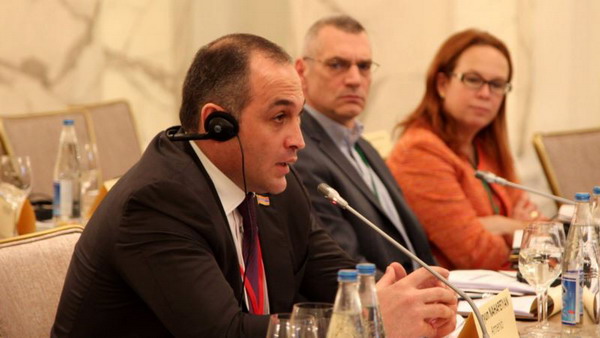Under the NATO Parliamentary Assembly, the boycott by the Armenian delegation at the reception organized by the Head of the Azerbaijani delegation remained unnoticed. The Head of the Armenian delegation in Baku, Koryun Nahapetyan, told Aravot.am that there was no response by the representatives of Azerbaijan and other member states of the Assembly. “It was left unnoticed. No question was raised by the members of their delegation or other member state of the NATO Parliamentary Assembly.” Note that the members of the Armenian delegation boycotted the reception organized by the head of the Azerbaijani delegation, given the inappropriate behavior by the head of the delegation and false rumors spread in the Azerbaijan media, allegedly the previous day, during the toast to Karabakh at the reception organized by the head of Azerbaijan Parliament, the member of the Armenian delegation have raised the cups agreeing that Karabakh belongs to Azerbaijan.
As said by Mr. Nahapetyan, today, during the workshop, the topics related to regional security, Afghanistan after 2014, and similar topics were discussed. The Azerbaijan delegation continued displaying aggressive behavior by voicing abusive language to the address of Armenian attendees and distorting historical facts. “On Iran topic, they were emphasizing that Armenia is in good relations with Iran, and were trying to drive a wedge, but the issue was not just about Iran. During the discussion about Georgia, the Azerbaijan delegate tried to allude to the issue of Javakhk, to show that it might be a problem in the Armenian-Georgian relations. With regard to Nakhchevan, they were presenting that Armenian is exercising an economic blockade, today it was refuted and was presented that Nakhchevan has borders with both Iran and Turkey. There are numerous examples of how the Azerbaijani delegates were trying to distort historical matters.” As said by Mr. Nahapetyan, the atmosphere of constructive dialogue was missing at the workshop. “With their actions, the Azerbaijan delegates were diverting the attention of the attendees with their provocative questions. I noticed that the other participants of the Assembly were expressing complaints in private conversations, that the Azerbaijani delegation’s approach is not appropriate for discussions of such format. During the private conversations, even with a glance, they were making us understand that we are demonstrating a more constructive and correct approach. No matter how hard we were trying to bring the Azerbaijan delegates to a constructive dialogue, it is clear that they could not enter into such a dialogue, because it was apparent that the Azerbaijan parliamentarians are severely restricted in terms of opportunities to speak freely.”
Arpine SIMONYAN






















































